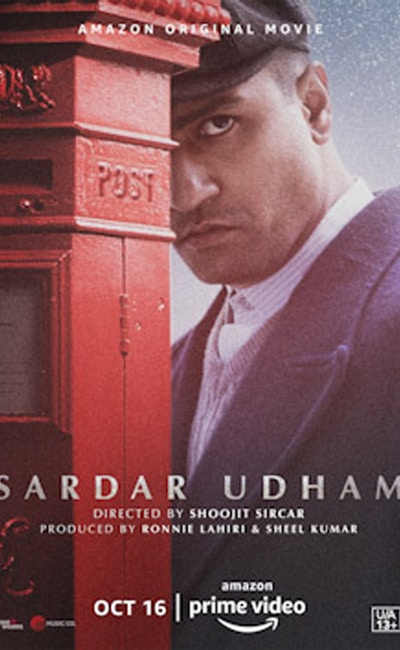
CAST: Vicky Kaushal, Amol Parashar, Stephen Hogan, Shaun Scott
DIRECTOR: Shoojit Sircar
BLUF:
Most patriotic movies are not made about freedom fighters as people, but freedom fighters as icons – generalizing them and condensing the complexities of their reasons and characters into neat marketable products for a multiplex audience. Sardar Udham Singh is a masterpiece that presents no such broad strokes.
THE MEAT AND THE POTATOES:
Sardar Udham, streaming on Amazon Prime Video, presents Udham Singh in his ideology as a rebel. His dedication towards something bigger than himself overcomes all the tropes about freedom fighters that we tend to establish in our narratives. A freedom fighter is not a person but a personality.
Udham’ s journey to what he finally became(Vicky Kaushal) starts with witnessing the Jallianwala Bagh massacre (April 1919); assassinating the Lieutenant Governor of Punjab, Michael O’Dwyer (March 1940); getting hanged (July 1940).
Shoojit Sircar brilliantly tells the story of the man who is so convinced of his ideology and methods that he becomes a force to reckon when even when silent.
The story making of this movie is the same. It says more in frames than not.
IN THE KNOW
Written by Ritesh Shah and Shubhendu Bhattacharya, Sardar Udham adopts a non-linear narrative that makes the story non-biopic and extremely engaging.
Sircar doesn’t treat the freedom fighter’s life as a pre-packaged story told.
He asks his viewers to first understand the story’s core and then proceeds to link different intertwined parts of the ‘big picture’ – making a definitive breakthrough in storytelling.
Whereas the story starts with Sardar Udham being released from jail in 1931; it carries with itself two different timelines of the same story- the influence of Bhagat Singh and Udham’s s foray into becoming a revolutionary.
Amol Parashar does justice to Bhagat Singh. The story again splits into two narratives when Udham kills Dwyer (Shaun Scott). One storyline is about the interrogations by a Scotland Yard officer, Swain (Stephen Hogan), and narrates Udham’s s journey in the UK from1934 to 1940. The split storytelling makes most of the meat of the storytelling and it wins in keeping audience attention in the hooks created in alternative narratives
The most beautiful part about Udham Singh is that he is created an individual on celluloid with his own trademark freedom struggle bringing so much life into that character fully justified by Vicky Kaushal.
There is never a doubt that the story is not a pre-packaged patriotic Bollywood offering. It is not.
It is perhaps the most deliberate movie made in India wrapped in contradictions, contexts, and growth of the character of the freedom fighter. It brings with it many lessons for the paper patriotism deemed as fashion these days.
These aspects are extremely vital as storytelling is an important aspect of how we create a national narrative.
The dialogues are crisp and very well written conveying a lot about the understanding that the crew had of the character they were portraying.
At the interrogation, Swain trying to get information from Udham says “Well, you must really hate the British,”
Udham replies in a self-assured calm “No, I’ve many British friends (…) I don’t hate you [either]. You’re just doing your job.”
Bhagat Singh, explaining his socialist commitment, declares, “A revolutionary has to follow certain principles. You can’t be prejudiced, communal, or casteist. There can be no social or economic difference. The only truth is equality.”
Another example of clear writing is where Bhagat Singh says, “Independence without a true ideology can be worse than slavery.”
Kaushal is as perfectly nuanced as the writing. He is almost a natural when mixing Hindi and (broken) English and matches the narrative pace and demands like a pro, at no point becoming bigger than the script. That is his brilliance.
Parashar is equally terrific. Hogan and Scott thankfully as Dwyer and Swain are not caricaturized.
Sircar achieves the most out of Udham Singh in exemplifying how stories about revolutionaries are to be presented. He also brings to the conclusion the debate about what freedom really is, for who is it and from whom- without which a revolutionary may not be the hero we look up to.
WHAT WE LOVED
Story
Writing
Actors
WHAT WE MISSED
The pace at the start




